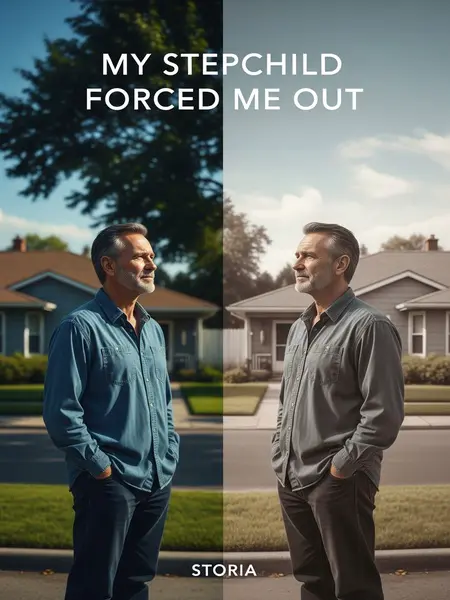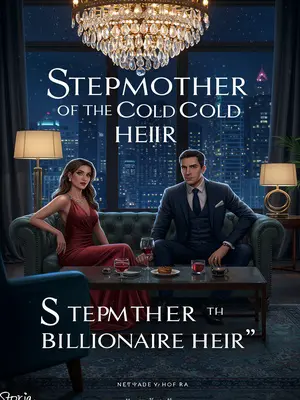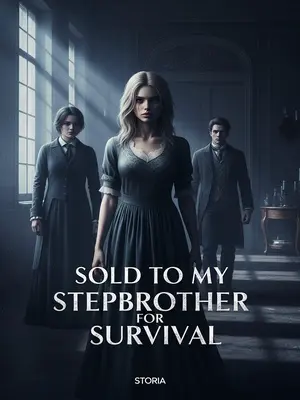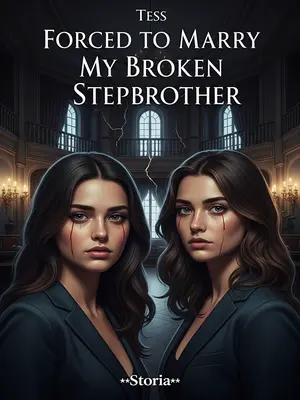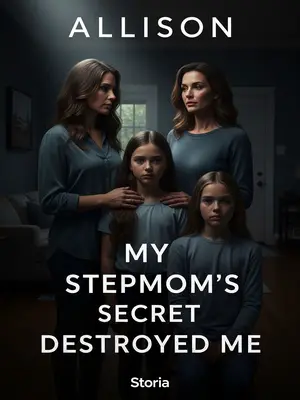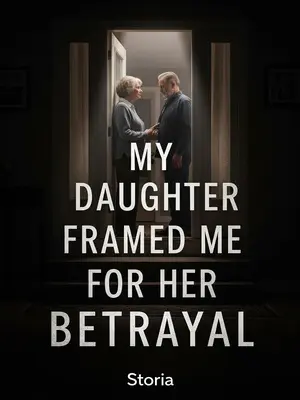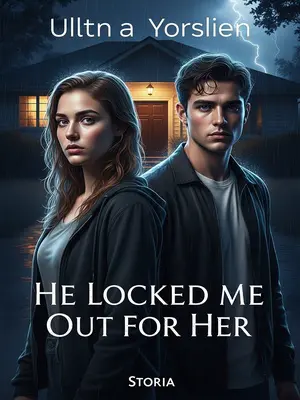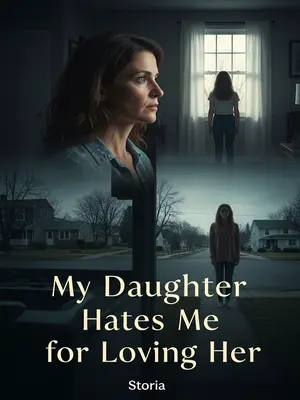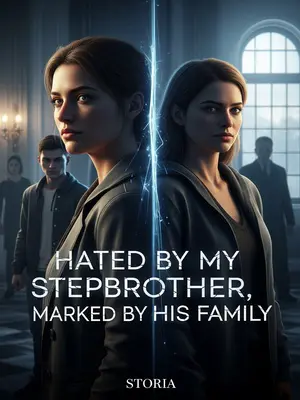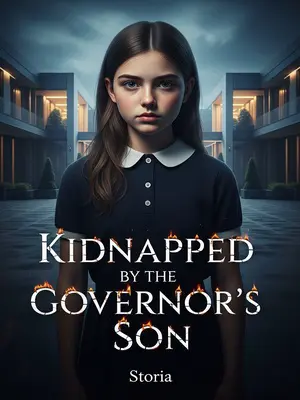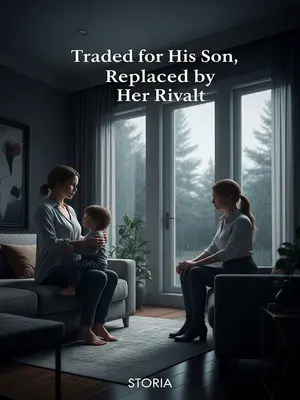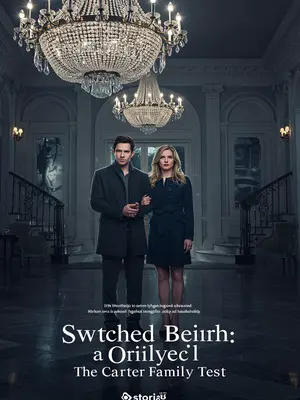Chapter 2: The Bitter Truth
Danny’s father had been a factory worker who died suddenly. Danny was seven at the time, and Linda Young was still pregnant. Her mother-in-law, notorious for being impossible, bullied her for being a country girl and seized her property.
The funeral had been a grim affair—black umbrellas dotting the muddy churchyard, and the scent of wet earth mixed with the tang of cheap aftershave and old hymns. Linda’s face was pale with grief and worry. That old woman—Danny’s grandma—never missed a chance to remind everyone Linda was an outsider, always talking about how she married beneath her late son. The family house was snatched away, and nobody said a word.
Back then, it was Linda who first suggested we live together. So why now did she wish me gone? I’d never forgotten that afternoon. She knocked at my door, rain on her coat, baby bump straining her old sweater, Danny shivering at her side. It was her idea, her hope for a new start. And now? Now, she wanted me out, as if all those years never happened.
"Linda, why are you doing this to me? Do all these years of marriage mean nothing to you?" My chest tightened, anger mixing with helplessness. My voice sounded smaller than I wanted—raw with disbelief. I tried to push up on the mattress, but my arms wouldn’t hold me.
"Mike, don’t put this on me. I can’t let you hold Danny back." Linda’s voice was as cold as the snowflakes drifting in through the door. Her words hung in the air, heavy as the winter chill sneaking through the gap. She didn’t look at me, just stared at the snow like it held all the answers.
I never knew if I died of cold or of hunger. Maybe it was both—a hunger for warmth, for family, for some scrap of dignity that had all been taken away. I closed my eyes, breath clouding in the frosty air, and let the world fade.
Floating above, I watched as heavy snow blanketed the houses, streets, and rows of parked bikes. The whole city looked like a magnificent painting. It was peaceful, oddly beautiful. Streetlights glowed amber on the snow, cars hushed beneath thick drifts. I saw my old Chevy covered, like it was sleeping too. Everything quiet, as if the world was giving me one last gentle goodbye.
"Hey, why is this lazybones still sleeping? If he doesn’t get up for work, this old lady’s gonna starve!" The sharp sound jolted me. I blinked, disoriented, and saw a familiar face—lined and crinkled like the faded wallpaper in her kitchen. There she was: Grandma Louise, calling out like she did every morning when I was young.
She stood in her faded housecoat, flour dusting her hands, just like when she’d bake biscuits on Sunday mornings. Her husband and son had joined the Army and never returned. With Social Security and a little help from the town, she had always lived with optimism. She’d wave at neighbors from her porch, bake lemon bars for the church bake sale, and never let a bad day show. Everyone in town knew her—she’d outlived just about everyone, stubborn as a mule and twice as generous.
Wait, hadn’t Grandma Louise already passed away? My mind reeled. Hadn’t we buried her years ago, the whole town turning up for her funeral? Yet here she was, alive and kicking, berating me for sleeping in.
"Why is this kid so silly after a nap?" she grumbled. Her eyes narrowed, lips pursed, but there was affection there—a warmth I hadn’t felt in years. If this was a dream, I didn’t want to wake up.
Laughter rang out nearby: "Grandma Louise, you don’t know—young folks might be lost in sweet dreams." The laugh belonged to Grandpa Joe, her neighbor—a man with a shock of white hair and a gentle way with plants. He always had a can of Pepsi and a Reds cap, his limp a badge from years in the coal mines.
I got up and saw Grandpa Joe tending his spider plants, watering can in hand. His hands were steady, despite the years. The air was thick with the earthy smell of wet soil and the faint tang of the fertilizer he swore by. He winked at me like he was in on some secret.
"Time to find yourself a wife," Grandma Louise grinned, her wrinkles deepening, her face full of kindness. She gave me a playful nudge, her tone more loving than bossy. It was the kind of old-school matchmaking that made you blush even if you were thirty.
Sunlight poured in, warm and bright. It spilled across the faded linoleum, pooling in golden squares. Outside, birds chirped and the world felt brand new—like a morning before life got complicated.
I touched my face—the wrinkles that should have been there were mostly gone. I looked down at my blue jacket. It was brand new. The fabric was stiff, the color vibrant. I ran my fingers over it, half expecting to find a patch or frayed cuff. Instead, it was perfect—a jacket from my youth, before the world wore me down.
Ever since being with Linda, everything I had went to the kids. When I died, I was still wearing this jacket, but by then, the patches had covered its original color. I remembered sewing on those patches late at night, cursing under my breath, determined to make things last. Now, all that history was wiped away. It felt like cheating death—a small miracle zipped up tight.
"That’s why you need a wife. Look at you, still wearing a jacket at your age." Grandma Louise clucked her tongue, clearly unimpressed with my bachelor ways. The old rules still held: a man alone was a problem waiting to happen.
So, was I alive again? Reborn in my youth? My heart pounded. Could this be real? I scanned the room for clues—a faded photo on the wall, the ticking of the old kitchen clock. Everything was exactly as it was decades ago.
I stared at the newspaper on the table. The date jumped out at me—May 7th, 1985. My mind spun, trying to make sense of it all. Was this a dream, or had I really been given a second shot?
"Grandma, what time is it?" I was desperate to know the year. Maybe Danny’s father was still alive. Maybe everything could be changed.
She squinted at the battered kitchen clock. "It’s already ten o’clock. Aren’t you going to the cafeteria? I’m still waiting for you to bring back leftovers."
Her words hit me like a freight train. I scrambled for my wallet, heart in my throat. If I could get there fast enough, maybe history wouldn’t repeat itself.
A frantic voice approached: "Something’s wrong, Mr. Joe, come quick—something’s happened..." I barely caught the words before the world tilted. The memory was sharp and painful—Danny’s father, a good man, collapsing at work. I ran, but by the time we got to the hospital, hope was already gone.
But it was too late. By the time Danny’s father reached the hospital, he was already gone. The doctors shook their heads, hands folded in apology. Linda wept quietly, holding Danny close, her world shattered. All I could do was stand in the hallway, wishing I’d been faster, stronger—anything but helpless.
